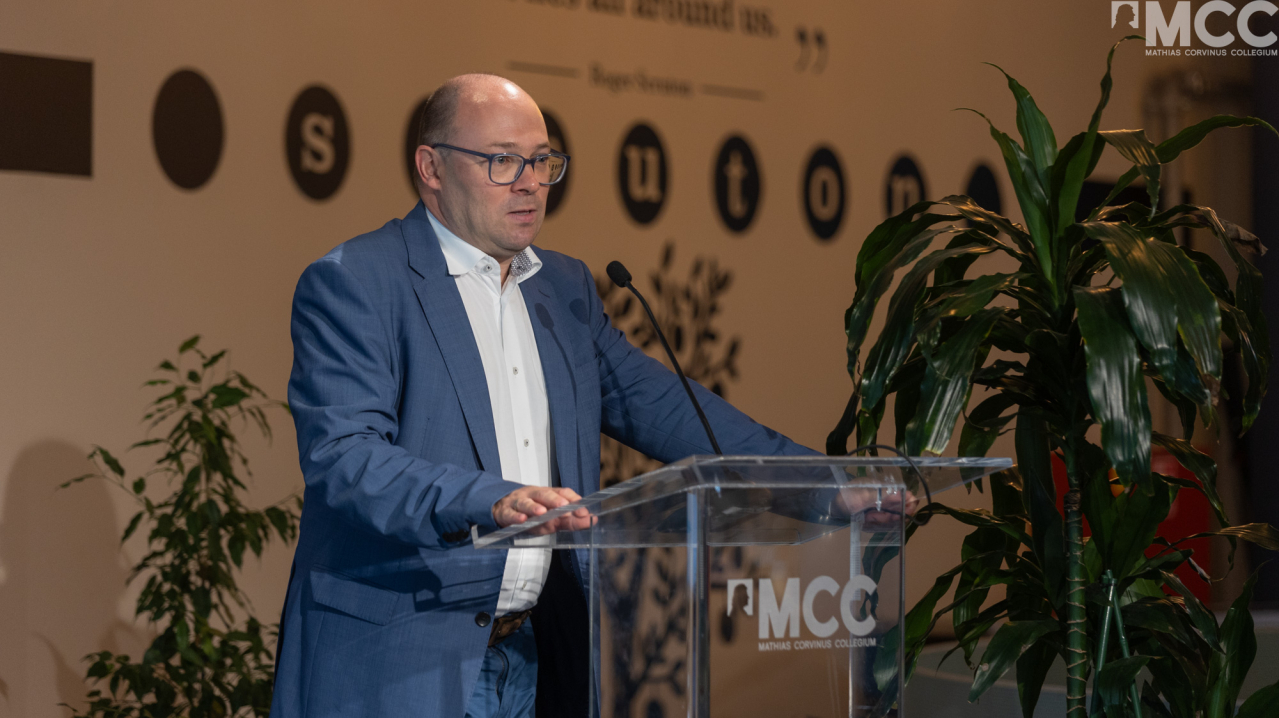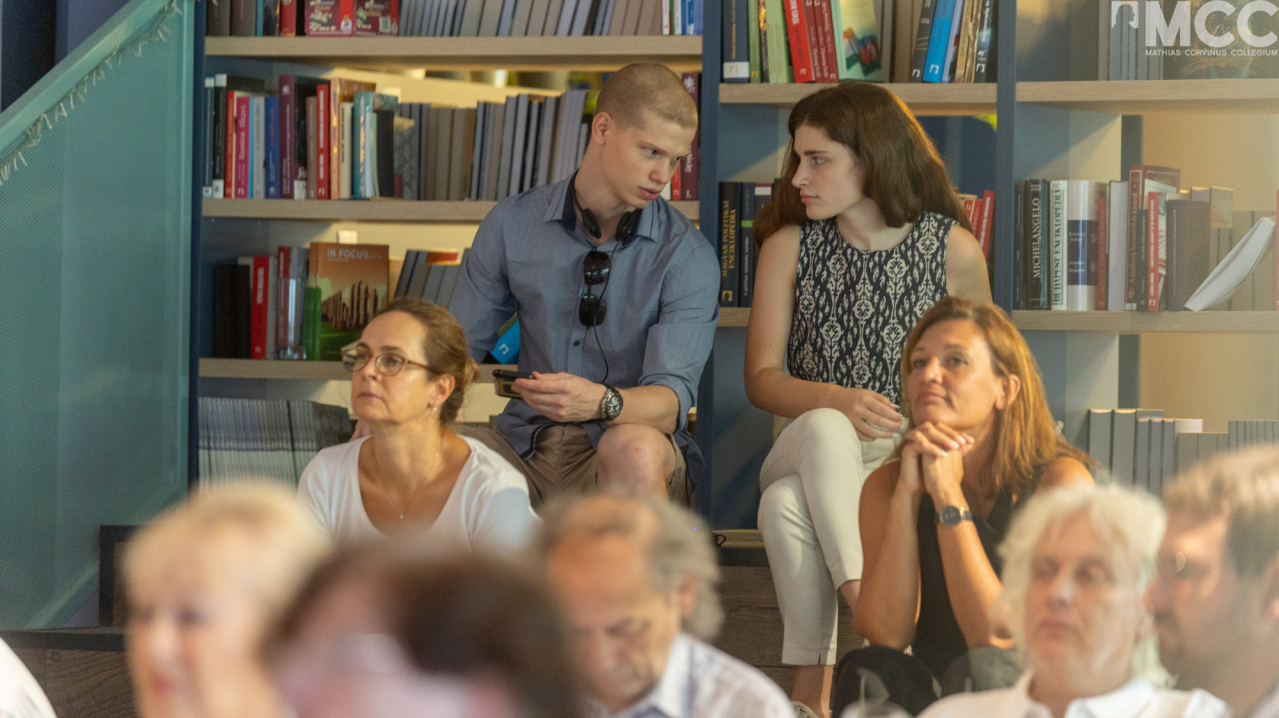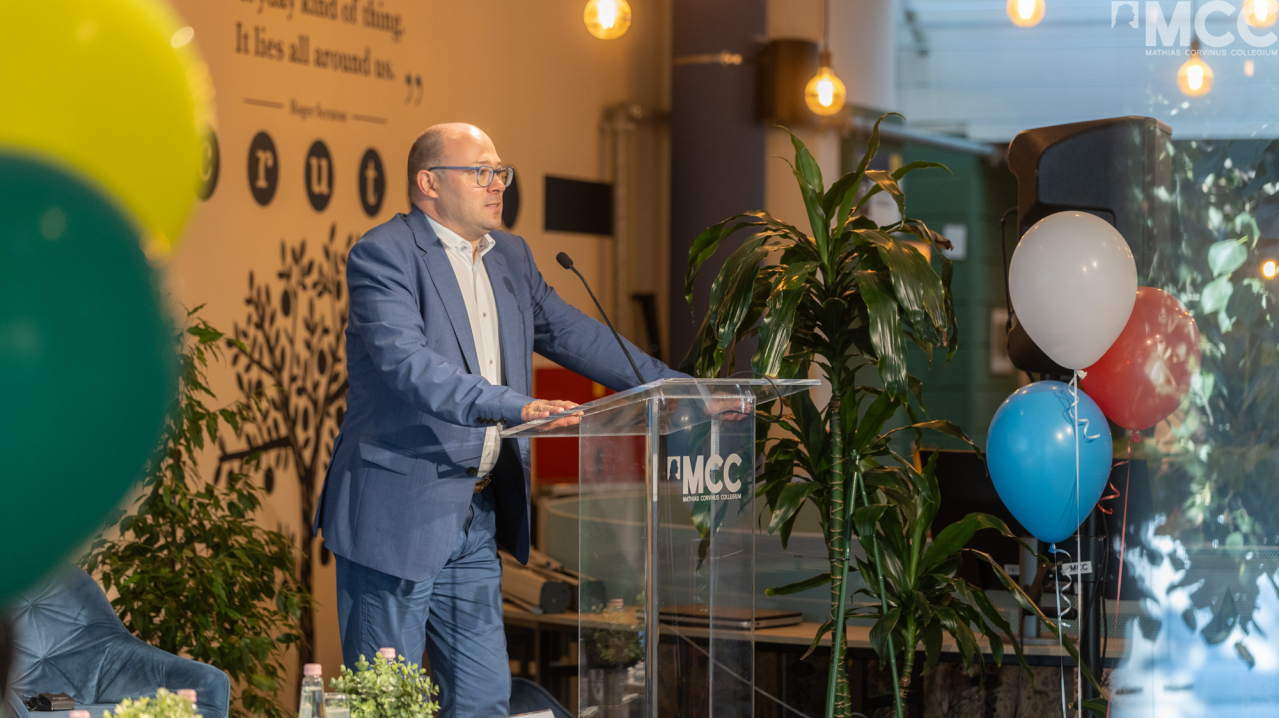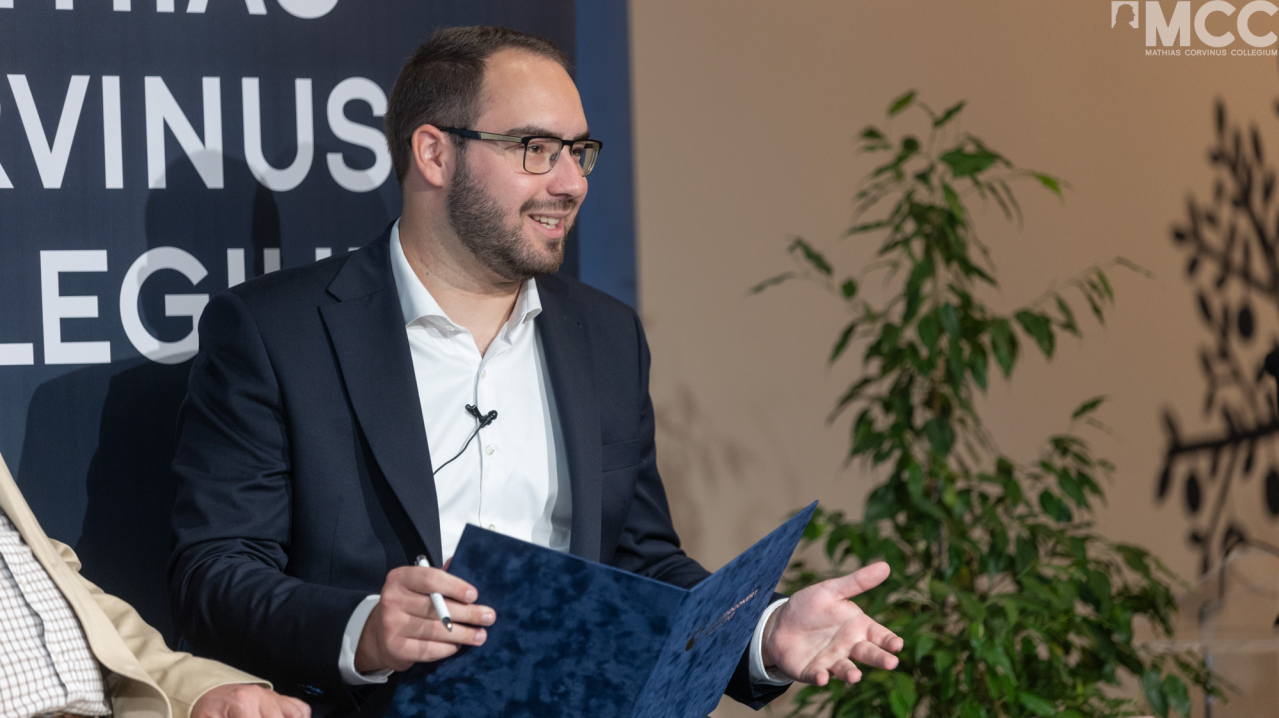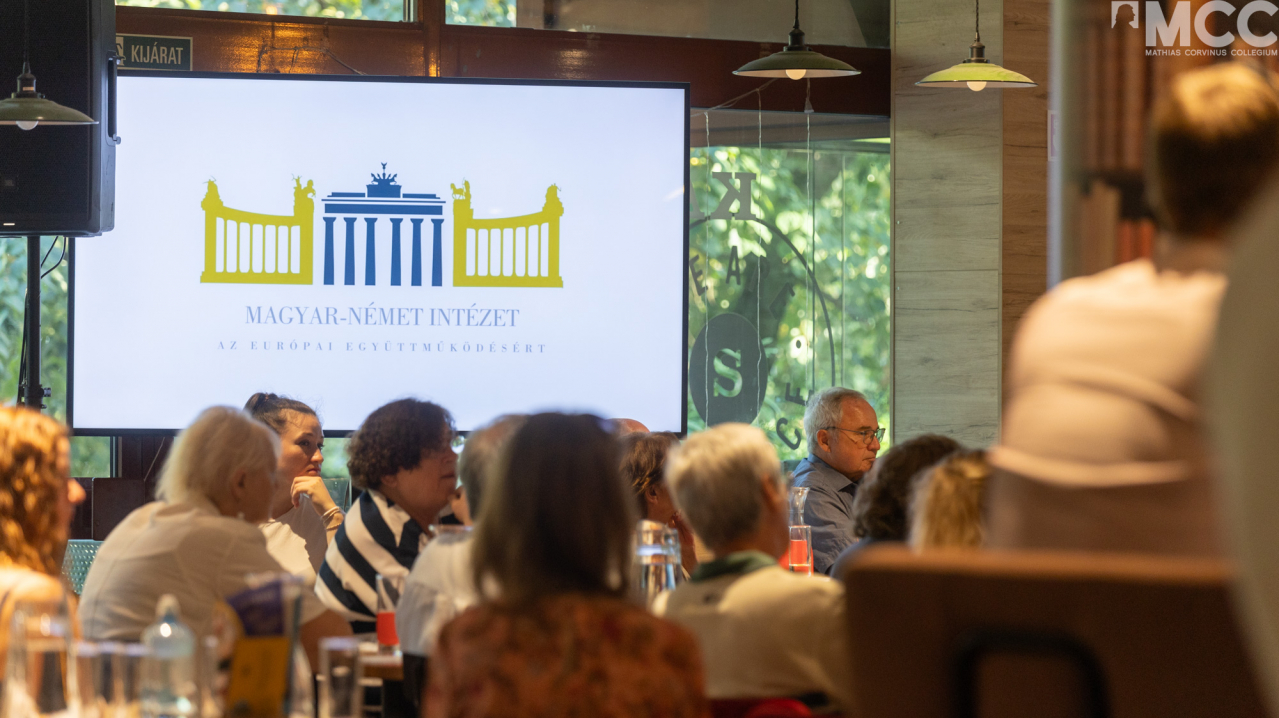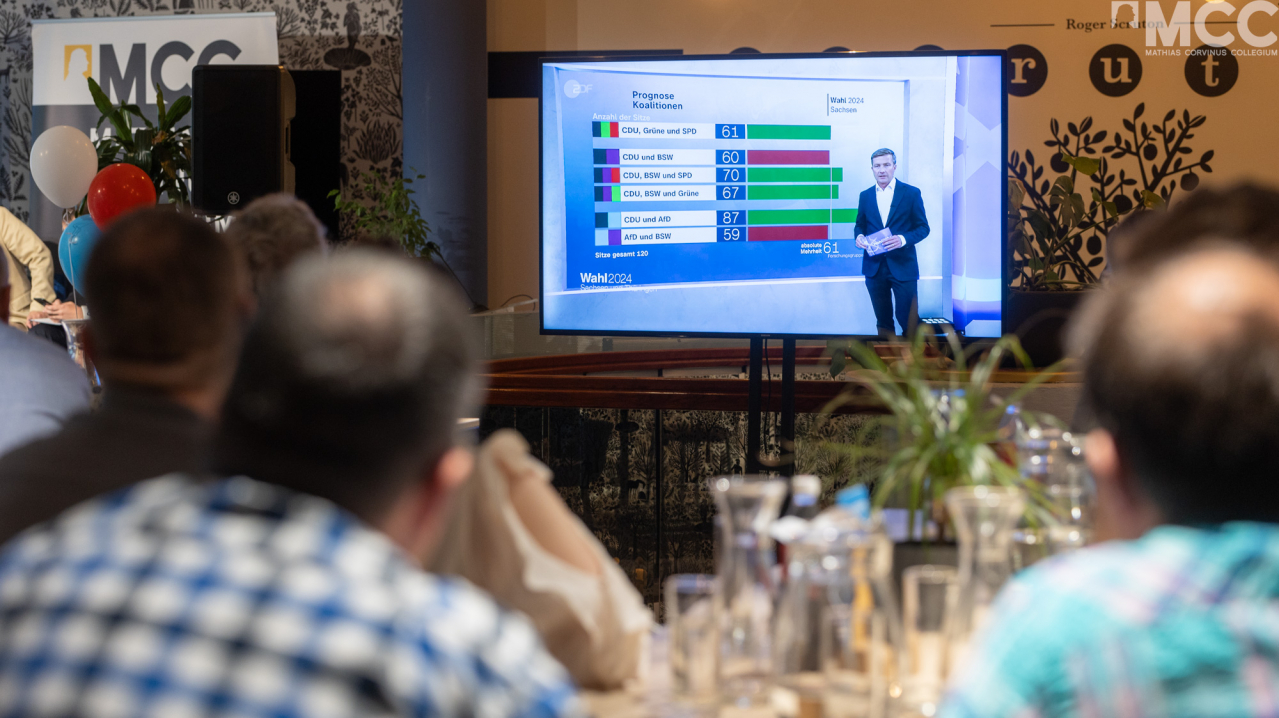Reading time: 2 minutes
The German election year continued on September 1, 2024, with two important state elections in the East German states of Saxony and Thuringia. Since political dissatisfaction with the current direction of the federal government coalition is most evident and drastic in East Germany, this is perhaps one of the most significant political events of the year in Germany. The German-Hungarian Institute hosted a live broadcast of the event at MCC, and, with the help of invited experts, also analyzed the preliminary results.
|
|
AfD |
CDU |
SPD |
BSW |
Linke |
Grüne |
Andere |
|
Saxony |
31,4% |
31,7% |
7,8% |
11,4% |
4,3% |
5,5% |
7,9% |
|
Thuringia |
33,2% |
23,9% |
6,1% |
15,4% |
11,5% |
3,9% |
6% |
- Saxony and Thuringia State Parliamentary Election Results (Preliminary – 09.01., 19:00)
According to the forecasts on September 1, 2024, the CDU is expected to receive the most votes in Saxony, while the AfD is clearly leading in Thuringia.
During the discussion on the state elections, Ágoston Sámuel Mráz, Head of the Nézőpont Institute, emphasized that all German parties are united against the AfD, which has gained popularity through its migration policy. All relevant social, economic, and cultural actors distance themselves from the AfD—they are terrified of the possibility of the party coming to power. Due to the significant tensions and lack of unity within the AfD, Mráz believes that the elite parties will likely respond to the AfD's growth by employing a wedge strategy. Mráz also mentioned that the CDU has posessed German chancellorship more than any other party, indicating that maintaining power is CDU's highest priority. Therefore, all efforts will continue to focus on ensuring that their candidate becomes the next chancellor.
Bence Bauer, Director of the German-Hungarian Institute, stated that 70-80% of German society believes the current government should be replaced, an unprecedented level of dissatisfaction in Germany. He also pointed out that the Greens are no longer popular among Germans, particularly in East Germany; in Saxony, it is possible that the Greens will be replaced by the BSW, while in Thuringia, a political gamble is beginning. According to the director, the state of German democracy is questionable if the shutdown of a leading opposition party is considered a viable solution in Germany. Bauer believes it is highly unlikely that the FDP would risk breaking up the federal government coalition before the 2025 elections.
Zoltán Kiszelly, Director of Political Analysis at the Századvég Foundation, emphasized that the real issue in Germany is the acceptance of welfare migrants, whereas the country is in need of skilled workers. Regarding the AfD, he added that two-thirds of Germans are afraid to take a stand on political issues because they fear being shamed. The expert believes that the FDP should prioritize the list vote in the 2025 Bundestag election, as they lack strength in individual constituencies.
This event was only the latest in MCC's serious of election-watching events.
